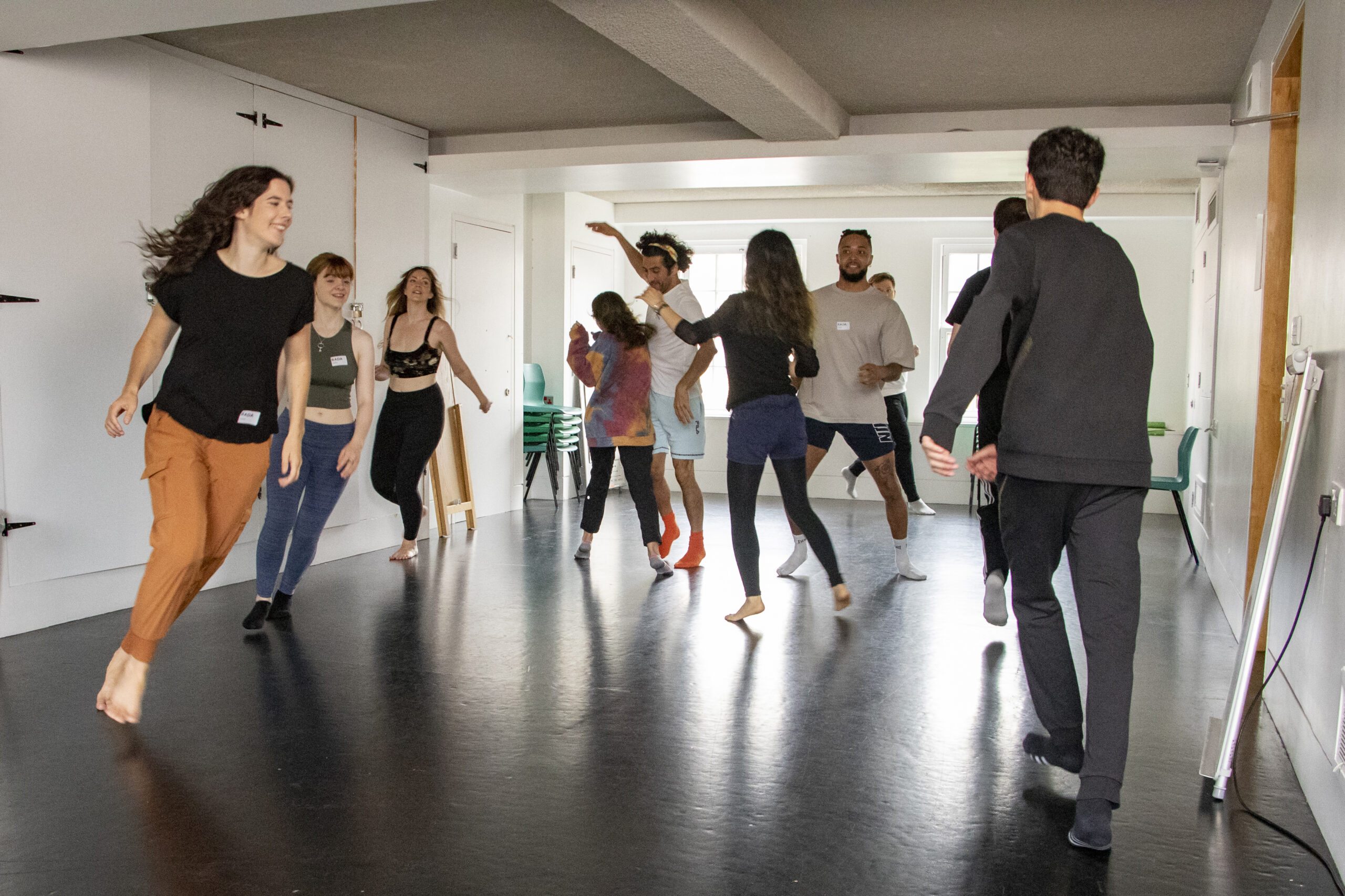Not getting into drama school may feel like the end of the world, but it isn’t. Here, we share tips for actors on what to do next if you didn’t get a placement at drama school
September signals the start of the term for drama schools across the country. This is an exciting period for actors as they take their first steps towards their dream careers. However, those who didn’t get a place can be left feeling deflated. It’s normal to be disappointed when things don’t go to plan, but feel assured that not getting into drama school isn’t the end of the world.
Oscar nominee Carey Mulligan didn’t train and was rejected from every drama school she applied to, and it took Eddie Marson two years to get a place at Mountview.
Going to a top drama school and getting an agent in the final year showcase was once the status quo for becoming an actor, but times have changed. Felicity Jackson, founder of Actors Pro Expo, told Spotlight, “Since Covid, there is so much more accessible training online, which is a great place for actors to start. Sometimes going to drama school with no experience is perhaps not the best time.”
She continues; “Doing some short films and dipping your toes in the industry before going on to a full-time course is a good idea, as it gives you a feel of the industry and confirms whether you want to pursue it or not.”
If you’re looking for advice regarding your next steps, this guide will tell you what you need to know.
Why Do Drama Schools Reject Actors?
Thousands of actors audition every year for a place at drama school, and here are the main reasons why they don’t get in:
Limited places
Not getting a place doesn’t mean you are not good enough, and often it can be a numbers game. For example, RADA offers just 64 undergraduate places with 26-27 as the maximum for the acting course, while auditions are around 4,500 applicants each year.
Maturity
Drama schools like actors with life experience who are comfortable with who they are. Don’t be disappointed if the panel suggests trying again the following year – this is positive feedback. Hundreds of actors don’t get into a drama school first time, but they do in the years to follow. Don’t give up!
Material choice
Choosing the right monologue to perform at your drama school audition is key – picking a piece that goes through a range of emotions doesn’t score extra points. You have a few minutes to impress the panel who want to see you engage with the text and the character.
Personal opinion
An audition panel is made up of a few people and does not represent the entire acting industry. Actor and acting coach Giles Foreman told The Stage, “I remember sitting on the panel at Drama Centre London some years ago, and I would disagree vehemently with some of the other panel members about who to choose.” Rejection is part of a career in acting; some people will love your work while others won’t, and that’s okay.
What Should I Do Before the Next Round of Auditions?
First, you need to ask yourself if you still want to go to drama school. If the answer is yes, use the time before you re-apply wisely.
- Develop yourself as an actor by taking classes online or in your local area. You can also take a short course at one of the drama schools you want to attend, and many offer in-person and online options.
- Broaden your experience by attending the theatre, watching films and TV shows and reading acting books, novels and plays. There is so much content out there – spending time consuming it will really broaden your knowledge of the industry and the creative teams who work in it.
- Preparation is essential, so start looking for your audition material well in advance. Knowing your monologue inside out will give you confidence, and you’ll be able to answer any questions the panel may have. Working with an acting coach is also helpful as they can advise on monologues and give professional direction.
- Use this time to learn some in-demand skills, such as horse riding or stage combat.
- Get your driver’s licence – some touring jobs require it.
If you plan to train in London, be aware that it’s an expensive city, so set yourself up financially by working and saving up. Developing a skill by taking a course in a subject that interests you, such as writing or social media, will allow you to work on a more flexible schedule.
Alternatives to Full-Time Training
Some actors might decide not to go down the full-time training route, opting for cheaper and more flexible courses. There is a fantastic range of classes and courses throughout the UK, meaning you don’t necessarily have to move to London. Shorter course durations are also ideal for older actors who want to enter the industry quickly.
Full-time training at an accredited drama school makes actors eligible to join Spotlight, but more opportunities to get membership have opened up. Spotlight-accredited courses such as the 18-month Acting for Screen Diploma course at YAFTA in Leeds allow actors full membership upon completion. It’s also worth taking a look at the courses on offer at Identity School of Acting, as attended by John Boyega, Letitia Wright and Damson Idris.
How to Get an Acting Agent in the UK Without Training
You don’t need to attend a top drama school to get an agent, and many actors in the industry have succeeded without it, including Maisie Williams, Idris Elba, Florence Pugh, Jodie Comer, Michael Ward, Matt Smith, and many more.
It’s advisable to do some form of training, and choosing a Spotlight-accredited course is a good option, as most agents won’t take actors who are not on the platform. Selecting a course with a showcase where you can invite agents and casting directors is a good choice. You can also check social media for monologue competitions as agents attend those.
Actors can get Spotlight membership via professional acting credits. Read this article about Spotlight’s joining criteria for more information.
If you’re not on Spotlight and want professional credits, contact your local theatres for casting information, join casting sites, check auditions at The Stage, and follow casting directors on social media.
A professional headshot and CV are essential for getting an agent, but a strong showreel will set you apart. Before going to an expensive showreel company, you can get some clips by doing short films and asking for permission to use the footage in your reel.
If you didn’t get into drama school this year, don’t panic – it doesn’t mean you’re not good enough. There are many actors in the same boat as you and, unfortunately, rejection is something performers need to get used to. Some of the most famous actors around got rejected from drama school or tried multiple times to get in, so you’re in good company.
Remember: not all actor’s journeys are the same, and there are many paths you can choose to pursue your career.
Take a look at our News & Advice section for more tips and advice about drama school.
 Sarah Ridgway trained as an actor and has dabbled in stand-up comedy. Sarah is now a freelance writer, and her credits include Backstage and Actors Pro Expo; she is also passionate about empowering solo female travel.
Sarah Ridgway trained as an actor and has dabbled in stand-up comedy. Sarah is now a freelance writer, and her credits include Backstage and Actors Pro Expo; she is also passionate about empowering solo female travel.
Image credit: Joanna Nicole Photography











